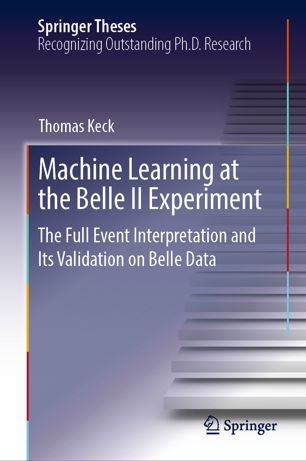

Most ebook files are in PDF format, so you can easily read them using various software such as Foxit Reader or directly on the Google Chrome browser.
Some ebook files are released by publishers in other formats such as .awz, .mobi, .epub, .fb2, etc. You may need to install specific software to read these formats on mobile/PC, such as Calibre.
Please read the tutorial at this link: https://ebookbell.com/faq
We offer FREE conversion to the popular formats you request; however, this may take some time. Therefore, right after payment, please email us, and we will try to provide the service as quickly as possible.
For some exceptional file formats or broken links (if any), please refrain from opening any disputes. Instead, email us first, and we will try to assist within a maximum of 6 hours.
EbookBell Team

4.4
92 reviewsThis book explores how machine learning can be used to improve the efficiency of expensive fundamental science experiments.
The first part introduces the Belle and Belle II experiments, providing a detailed description of the Belle to Belle II data conversion tool, currently used by many analysts.
The second part covers machine learning in high-energy physics, discussing the Belle II machine learning infrastructure and selected algorithms in detail. Furthermore, it examines several machine learning techniques that can be used to control and reduce systematic uncertainties.
The third part investigates the important exclusive B tagging technique, unique to physics experiments operating at the Υ resonances, and studies in-depth the novel Full Event Interpretation algorithm, which doubles the maximum tag-side efficiency of its predecessor.
The fourth part presents a complete measurement of the branching fraction of the rare leptonic B decay “B→tau nu”, which is used to validate the algorithms discussed in previous parts.